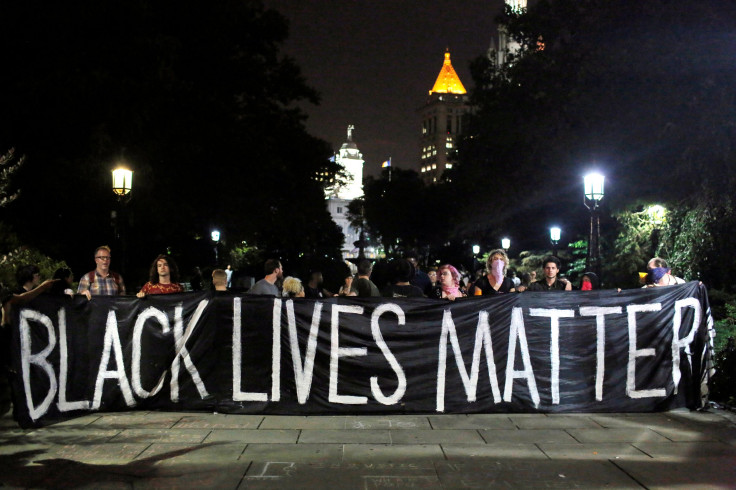Police Surveillance: Black Lives Matter Texts Accessed By NYPD Undercover Officers

NYPD undercover officers were so successful in infiltrating Black Lives Matter groups in New York, they were on text chains with protest organizers and gained the trust of an inner circle of activists, documents show.
New NYPD records unsealed by court order in February show that undercover officers had access to text messages of activists who planned protests in response to the police killing of Eric Garner in 2014, which was ruled a homicide by the city coroner. But the police didn't access the text messages, which gave details on protests and planned actions through hacking or any other kind of electronic surveillance. Instead, they appeared to gain the near total trust of protesters. At least one traveled to a protest at Grand Central with a group of activists and organizers.
Read: What's Next For Black Lives Matter? On MLK Anniversary, Movement Joins Fight For $15
"I feel like the undercover was somebody who was or is very much a part of the group, and has access to information we only give to people we trust,” Keegan Stephan told the Guardian. Stephan is an activist who has been working with attorneys to obtain documentation of NYPD surveillance of the protests. “If you’re walking to Grand Central with a handful of people for an action, that’s much more than just showing up to a public demonstration – that sounds like a level of friendship.”
The Guardian spoke to retired NYPD detective sergeant and John Jay College professor Joseph Giacalone, who said the undercover operations may have been fairly in-depth in order to achieve such a deep infiltration of the activist group.
"This could have been going on a while before for these people to get so close to the inner circle,” Giacalone said.
NYPD has courted controversy with its surveillance of peaceful groups in recent years. In October, a federal judge said the NYPD violated rules protecting free speech and religion when he threw out a settlement in a lawsuit accusing the NYPD of illegally surveilling New York's Muslim population.
© Copyright IBTimes 2024. All rights reserved.












